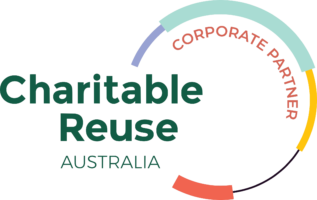Mandatory waste management group membership slated for Perth
A review of WA’s Waste Avoidance and Resource Recovery Act 2007 (WARR Act) is set to create an opportunity for new recovery infrastructure in Perth.
The WARR Act is the principal legislation for waste management in Western Australia. It is subject to a statutory review within five years of its commencement. Starting in July 2008, the legislation is currently under review.
Along with providing effective sanitation, the WARR Act looks to promote resource recovery. About 43% of Perth’s waste is currently recovered through Material Recovery Facilities, Alternative Waste Treatment (AWT) plants or by composters.
Following the review, the WA Department of Environment Regulation (DER) has released a draft discussion paper, describing some major changes which could result from the review of the WARR Act.
Given its population size and geographic isolation, Perth has done quite well in terms of resource recovery.
It currently has three AWT plants, SITA’s BioVision ARRT servicing Mindarie Regional Council (MRC), SMRC’s Regional Resource Recovery Centre (a drum composter) and the unique AnaeCo DICOM plant built on behalf of the WMRC and the City of Sterling.
Further, WA is leading Australia in the adoption of waste to energy technology. At least three WtE plants are slated for commencement in the next decade – two by New Energy and one by Phoenix Energy.
One key reason for the adoption of AWT and WtE in WA is the ability of the regional groups to aggregate tonnes for single contracts – and their ability to enforce the commitments they make on behalf of Councils.
The Metropolitan Waste Management Group in Victoria has similar coordination powers (and is powering ahead with regional composting facilities) but few other regional groupings of Councils across Australia, can bind individual Councils to regional processes.
Disaggregated and voluntary processes undermine the capacity to tender for, and secure, large infrastructure.
Now, the review of the WARR Act is proposing to accelerate this aggregation. The three major reforms proposed in the discussion paper pertain to collection and processing of waste, governance of waste groups and infrastructure planning.
Collection
Firstly the WARR Act proposes to unify domestic bin collection systems by handing control of collection systems and processing infrastructure to the metropolitan waste management groups.
To quote the draft paper, “Waste collection and processing arrangements vary considerably across the Perth metropolitan region. As a result there are inefficiencies caused by an inability to achieve economies of scale and to coordinate significant supplies of waste.
“Experience in other jurisdictions highlights the benefits of aligning local government or regional council waste planning with State plans and strategies, and providing for compulsory membership of groups that coordinate procurement of waste services on behalf of member local governments.
In order to cement this, the review proposes to make local government membership of these groups mandatory.
Governance
The draft changes also improve the Governance structures in the region. The paper describes how ownership of, and governance arrangements for, solid waste in the Perth and Peel region are fragmented. Generally, whichever entity possesses the waste material has ownership of it at that point in time.
This means that the collectors of the waste material can determine where it is treated or disposed.
The exception is where the point of disposal is stipulated in the collection contract. This has resulted in inefficiencies in the manner that waste is treated and disposed as the current system does not optimise the use of infrastructure, transport, land-use and markets in relation to waste management.
It addition, it is unlikely that the waste recovery targets for municipal solid waste (MSW), commercial and industrial (C&I) and construction and demolition (C&D) waste as set out in the Waste Strategy will be achieved under the current arrangements.
Infrastructure planning
Infrastructure planning is another critical step, with further plans in this space to ensure consistency between councils.
The review proposed to establish statutory waste group plans and local government waste plans under amendments to the WARR Act to require waste groups or local governments to align waste services and contracts with a State waste infrastructure plan, Waste Strategy targets or codes of practice.
The WARR Act would be amended to provide for the establishment of a statutory State waste infrastructure plan linked to waste group plans and local government waste plans, including determining the requirements for landfilling of wastes.
This would align all planning from a local to a state level, something not achieved in other states.



